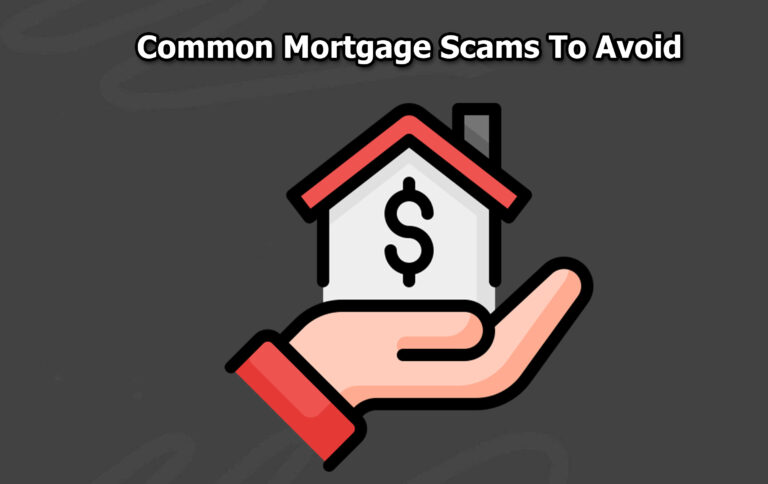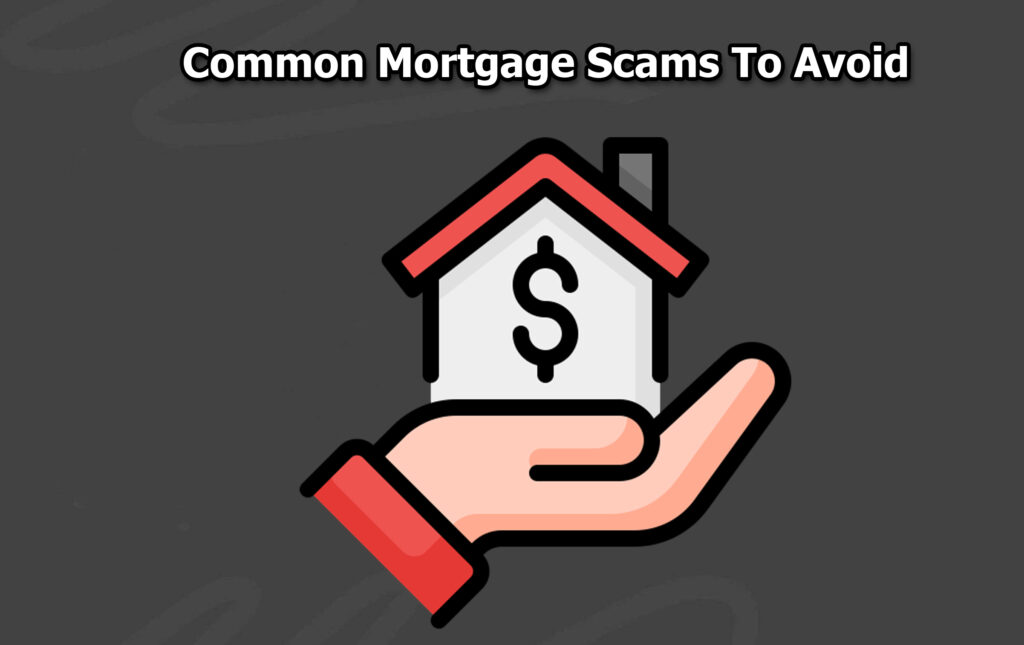
Common Mortgage Scams To Avoid – Purchasing or refinancing a home is one of the biggest financial decisions a person can make. For most people, it sometimes mean they have to take out a mortgage, which often comes with a long-term financial commitment.

While the process of securing a mortgage can be very smooth and straightforward when dealing with reputable lenders, it isn’t always the same.
Unfortunately, certain individuals and organizations exploit this process and people for financial gain. Mortgage scams have rapidly become a growing concern, especially in today’s digital world where fraudsters use clever tricks to deceive even the most cautious borrowers.
Furthermore, mortgage fraud can happen in many forms and affect different people, from first-time homebuyers to homeowners facing foreclosure.
Sadly, these scams can result in loss of money, damaged credit, or even the loss of your home. In this article, we will be going through some examples of common mortgage scams to avoid.
Common Mortgage Scams To Avoid
Foreclosure Rescue Scams
When homeowners fall behind on mortgage payments and face foreclosure, they become vulnerable to predators that promise swift relief.
These scammers often pose as specialists or companies claiming they can “rescue” the homeowner by negotiating with the lender on their behalf. Some common signs of foreclosure rescue scams include:
- The scammer requests upfront fees for their services.
- They claim to be affiliated with government housing programs without providing proof.
- They pressure you to sign documents you don’t fully understand.
- They encourage you to transfer the property title to them.
A helpful tip is to always consult directly with your lender or a HUD-approved housing counselor before you agree any to third-party help.
Bait-And-Switch Schemes
The way this scam works is that when a borrower applies for a loan under certain terms, he/she finds out at closing that the loan has different, and often worse, terms. At this point, some feel really pressured to proceed, especially if they are on a tight timeline.
What to watch out for:
- Final paperwork that doesn’t match initial loan agreements.
- High-pressure tactics from the lender or broker to close the deal.
- Seeing interest rates, loan terms, or monthly payments that suddenly increase.
A helpful tip is to always read every document before you finally sign. If something changes from the original terms, ask questions and don’t be afraid to walk away.
Equity Skimming
This scam involves an investor convincing a homeowner to sign over the deed to their home. In exchange, the scammer promises to take care of the mortgage and let the homeowner rent the property back.
Instead, the scammer collects rent without paying the mortgage and eventually lets the property go into foreclosure. Here are some warning signs you should recognize of an equity skimming scam:
- Promises to let you stay in the home without owning it.
- Lack of transparency about how your mortgage will be handled.
- Requests to transfer your property title.
A warning, you mustnever transfer your deed or title without consulting a qualified attorney or financial advisor.
Loan Modification Scams
This type of scam usually target struggling homeowners by offering to reduce monthly payments or change loan terms in exchange for a fee. Furthermore, these scammers often use official-sounding language and may even have convincing websites. Here’s how they operate:
- Victims are promised a quick solution to their loan issues.
- Then, they will be asked to pay fees in advance, sometimes in the thousands.
- Some fraudsters tell homeowners to stop paying their mortgage while the “modification” is being processed.
Real loan modification services, especially those offered through government programs, do not charge upfront fees. This are things that you must look out for to avoid
Fake Mortgage Lenders Or Brokers
Another type of common mortgage scam to avoid is dealing with fake mortgage lenders. Some scammers create entire fake mortgage companies or pose as legitimate brokers. Additionally, they collect personal information, application fees, or deposits and then disappear.
How To Verify Lenders
- Check their license with your state’s department of financial institutions.
- Look for official contact information and physical office addresses.
- Be very cautious of lenders who rush you into a deal or use only mobile or encrypted apps for communication.
Additionally, always do your research and confirm the legitimacy of any lender before you start sharing sensitive financial information.
Frequently Asked Questions
What Should I Do If I Suspect A Scam?
You must stop all communication with the suspected scammer and contact your bank, mortgage company, and local housing authority right away.
How Can I Report A Mortgage Scam?
You can report mortgage fraud to your local law enforcement agency, the Federal Trade Commission (FTC), or the Consumer Financial Protection Bureau (CFPB).
Can I Get My Money Back If I’ve Been Scammed?
In some cases, you might recover funds through legal action, but it depends on the specifics of the case. It’s best to act quickly and contact authorities immediately.